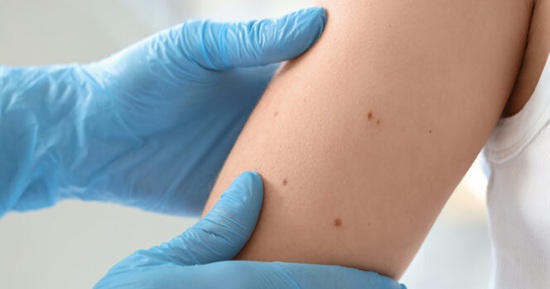
Rhys Russell was just 18 years old when his life was cut short by a form of cancer so quiet, so unassuming, that no one saw it coming—not even him. What started as a nearly invisible red patch on his scalp turned into a full-blown medical crisis in just a matter of months. His tragic story is a powerful reminder that melanoma, often thought of as a disease for older people or sun worshippers, can strike anyone—at any age, in any condition, with little to no warning.
For Rhys, it all began with something small. One evening, under the harsh light of a bathroom, someone in his family noticed a faint red spot beneath his thick curls. It didn’t itch. It didn’t hurt. There was no mole, no scab, nothing to suggest that it was dangerous. It was easy to ignore, and at first, that’s exactly what they did. But on second thought, and out of an abundance of caution, they brought Rhys to the doctor. That decision changed everything.
In November 2021, the Russell family received the devastating diagnosis: melanoma. It was a shocking blow—Rhys was young, active, and healthy. He had no history of prolonged sun exposure, and no one expected that the faint red mark was hiding something deadly.
By early 2022, the cancer had progressed to stage four, spreading aggressively throughout Rhys’ body—his liver, lungs, brain, and other vital organs were all affected. Despite the best efforts of doctors, and an aggressive treatment plan that included targeted therapies and radiotherapy, the disease continued to advance. Rhys endured extreme pain, physical deterioration, and emotional trauma. The cancer moved so quickly that it outpaced nearly every medical attempt to slow it down.
According to the UK’s National Health Service (NHS), melanoma is one of the most aggressive and unpredictable forms of cancer. While it’s commonly associated with sun exposure, that isn’t always the case. In Rhys’ situation, there were no obvious environmental factors, which his father, Oli Russell, now emphasizes in public interviews and outreach efforts.
“There’s a big misconception,” Oli said in an interview with the Daily Mirror. “People assume melanoma only happens to people who’ve spent their whole lives in the sun, but that’s not always the case. Sometimes, it’s genetic. And sometimes, it doesn’t look like anything serious at all.”
Oli, who works as a community nurse, now speaks with the urgency and heartbreak of a father who watched his son slowly fade away. “If there’s anything unusual on your body, even if it seems trivial, talk to someone. Get it checked. Watching Rhys in his final weeks—losing weight, losing mobility, losing himself—it was unbearable.”
As the cancer spread to Rhys’ brain, it began to affect not only his body but also his personality and behavior. He became disoriented, confused, and eventually bedbound. The physical transformation was devastating for the family to witness. But through it all, Rhys remained brave.
In his final days, one small moment brought him real joy. A Zoom call with Manchester City star Jack Grealish, Rhys’ favorite football player, lifted his spirits like nothing else could. Grealish not only spoke with Rhys but also sent him a signed shirt and a personal message of encouragement. Rhys watched the video of their conversation again and again, clinging to the happiness it gave him in the midst of his suffering.
He passed away shortly after, but not without leaving a legacy.
Now, Rhys’ parents, Oli and Lauren, both healthcare professionals, are using their grief as fuel for change. They’ve launched a campaign to raise awareness about melanoma in young people and to challenge the stereotypes surrounding the disease. Their goal is simple but urgent: get more people talking, checking, and acting—before it’s too late.
One of Rhys’ final wishes was to have his ashes scattered at the Etihad Stadium’s memorial garden, the home of Manchester City FC. To fulfill that wish, the family launched a GoFundMe campaign, which has since drawn support from across the UK and beyond. The campaign is more than just a fundraiser—it’s a mission to educate, to advocate, and to ensure that Rhys’ story saves other lives.
His parents continue to share his journey publicly—not to inspire pity, but to spark awareness. Melanoma doesn’t always appear as a large mole. It doesn’t always show signs of change. Sometimes, it hides quietly, like it did on Rhys’ scalp. Sometimes, it whispers until it’s too late.
But through education, early detection, and public awareness, more lives can be saved.
Rhys Russell’s life was far too short, but his story may be long enough to change others. And that, his family says, would be the greatest way to honor his memory.